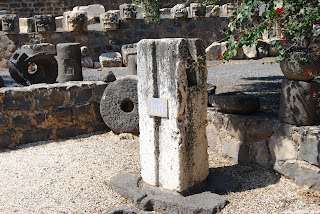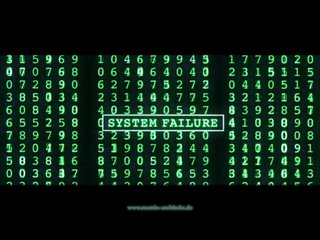We are coming into the home stretch, and you are doing great!
This week, the topic is "Worshipping in Community,"
We may not have time to watch the Ray Vander Laan episode called "The Rabbi," but it is here at this
click as a slideshow, see especially pages 3-7. It helps us grasp synagogue worship, and Jesus as a rabbi, abd that we often define worship in too Western and small a way.
This week, the topic is "Worshipping in Community,"
We may not have time to watch the Ray Vander Laan episode called "The Rabbi," but it is here at this
click as a slideshow, see especially pages 3-7. It helps us grasp synagogue worship, and Jesus as a rabbi, abd that we often define worship in too Western and small a way.
First of all, in a Hebrew mindset, "Everything is Spiritual"...
(which is very different from "It's all spiritual")..
------------------------------------
------------------------------------
Rob Bell video: "Everything is Spiritual"
part 1:
part 2:
part 3:
part 4:
part 5:
part 2:
part 3:
part 4:
part 5:
----------------------------------------------
Thus:
-1)Did you notice in the video the synagogue was (also) like a service club/community center?
2)Can you handle talking about/to God in the bathroom?
God in the Bathroom?
The ancient Hebrew language didn’t have a world for “spirituality.” Apparently that category didn’t exist in ancient Hebrew thought because they believed that all of life had the potential to be “spiritual.” This is very different from our dualistic worldview that separates the world into two categories: the spiritual (sacred) and the material (secular). In this worldview, God inhabits the spiritual realm, but he leaves the material realm to us. In order for a dualist to experience God’s presence, he has to transcend the secular realm and tap into the sacred where he will find God. The Hebrew worldview rejects this dualism. Lawrence Kushner puts it this way:
Judaism sees only one world, which is material and spiritual at the same time. The material world is always potentially spiritual. All things– including and especially, such apparently non-spiritual things and grossly material things as garbage, sweat, dirt, and bushes–are not impediments to but dimensions of spirituality.
That means it’s possible to encounter God’s presence anywhere, including the bathroom. Here’s a prayer taken from the Babylonian Talmud that was meant to be prayed while the pray-er was relieving himself:
"Blessed is he who has formed man in wisdom in wisdom and created in him many orifices and cavities. Is is fully know before the Throne of Thy glory that if one of them should be improperly opened or one of them closed it would be impossible for a man to stand before Thee."
If this prayer makes you uncomfortable because you think the bathroom is off limits to God, then you are a dualist.
Wade Hodges
-
PSALMS
PSALMS are the Jewish prayer-book (Rob Bell called it a "book of poems") that the early Christians used. What's wonderful, refreshing, honest...and sometimes disturbing (to us in the West) is that they cover the whole breadth of life and emotion. They are all technically songs and prayers.. But note how some weave in and out from a person speaking to God, God speaking to a person, a person speaking to himself. Somehow, Hebraiclly, holistically, it all counts as prayer.
...And as "song" Note in your Bible that several psalms have inscriptions which give the name of the tune they are to be prayed/sung to. Some seem hilarious, counterintuitive, and contradictory, but again not to a Hebrew mindset and worldview, with room for honesty, fuzzy sets and paradox:
- Psalms (click) with the line "Destroy my enemies", "break their teeth!!" ... To be sung to the tune of "Do Not Destroy" !!
- Psalm 22, a depressing ditty about someone in the throes of rejection despair and death. To be sung to the tune of "Doe in the Morning" ??
Can you name contemporary songs where the music doesn't seem to fit the lyric? Down lyrics to upbeat music? Vice Versa? How might that be healing/helpful/Hebrew/holy? and not Hellenistic?
Remember the Bono quote:
Click here for the audio (or watch here on Youtube) of this delightful statement by Bono:
"God is interested in truth, and only in truth. And that's why God is more interested in Rock & Roll music than Gospel... Many gospel musicians can't write about what's going on in their life, because it's not allowed . they can't write about their doubt....If you can't write about what's really going on in the world and your life, because it's all happy-clappy... Is God interested in that? I mean, 'Please, don't patronize Me! I want to go the Nine-Inch-Nails gig, they're talking the truth!
-Bono
From a 2003 discussion with New York Times, more audio here
"The Jewish disciples all worshipped Jesus, and some of those worshippers doubted." (matthew 28:17)
"The opposite of faith is not doubt, but certainty." -Anne Lammott
-
This audio (click) recording (video below also if the audio format doesn't work for you) of Bono introducing Pastor Jack Heaslip (U2's chaplain/pastor...kinda) to offer a prayer/blessing on the opening night (Miami) of U2's 2001 Elevation tour, is wonderful on so many levels.
For one, try playing it without revealing who it is (too bad the Irish accents are so obvious) to a CCMfundagelical, one skeptical of U2's faith, just mentioning that it's a prayer by a band's pastor on a tour's opening night.
Their complaint couldn't be that it wasn't evangelical enough (It could have come from a Michael W. Smith or Third Day gig), but that is is too evangelical; it's not just a quick opening prayer, he even prays over every inch of wire and sound equipment. Yeah, so evangelical that it's too (uh oh) "charismatic" ("Gee, he sure used the 'a' word a lot in that prayer.").
I love how in the introduction Bono offers all the band's staff, roadies, etc. opportunity to participate in the blessing, without apology, but without coercion or exclusion. He's bounded and centered. "Seeker sensitive," even...(Maybe he has been hanging with Bill Hybels and Rick Warren too much! (:......)Who could turn him down when he asks "if anyone wants a blessing"?
I also enjoy Bono's casual, almost apologetic (in both senses of the term) self-effacing (!) remark at the band about feeding the hungry "apparently"(yeah, like he had nothing to do with it) on the band that night.
Wow; and with that prayer; and Pastor Jack coordinating prayerwalks of the stadiums and venues each night of the tour...no wonder it turned ou
---------
There are several ways to categorize the psalms.
The first is the way the Bible itself does: Psalms is broken down into 5 "books" Hmm, 5...does that sound familiar? Name another book with 5 sections and suggest an answer for "Whats up with the number 5?"
Note the 5 sections are not comprised of different kinds/genres of psalms..but the styles and kinds are "randomnly"
represented throught the book..
kind of like life..
Here is one way to categorize the styles and genres:
- lament
- imprecatory
- praise
- thanksgiving
- petition
Walter Brueggemann suggests anotherhelpful way to categorize the Psalms.
Orientation:
o Creation - in which we consider the world and our place in it
o Torah - in which we consider the importance of God's revealed will
o Wisdom - in which we consider the importance of living well
o Narrative - in which we consider our past and its influence on our present
o Psalms of Trust - in which we express our trust in God's care and goodness
q Disorientation:
o Lament - in which we/I express anger, frustration, confusion about God's (seeming?) absence
§ Communal
§ Individual
o Penitential - in which we/I express regret and sorrow over wrongs we have done
§ Communal
§ Individual
q Reorientation
o Thanksgiving - in which we thank God for what God has done for us/me
§ Communal
§ Individual
o Hymns of Praise - in which we praise God for who God is
o Zion Psalms- in which we praise God for our home
o Royal Psalms - in which we consider the role of political leadership
o Covenant Renewal - in which we renew our relationship with God
-Bruggeman, source Click here.note how astonishingly HONEST the prayer/worship book of the Jews (and Christians) is!
We'll spend some time on the "three worlds" of Psalm 22, which Jesus quotes honestly on the cross:
Here (click title below) 's a sermon on Psalm 22, which is another amazing psalm to use in a worship setting...How often have you heard "My God, My God, Why have You forsaken me?" Or "God, where were YOU when I needed you!!"
(see
and
in a church song?
Yet how familiar is the very next psalm: 23.
Life is both Psalm 22 and 23...sometimes on the same day, in the same prayer.
If we think both/and...we think Hebrew.





















